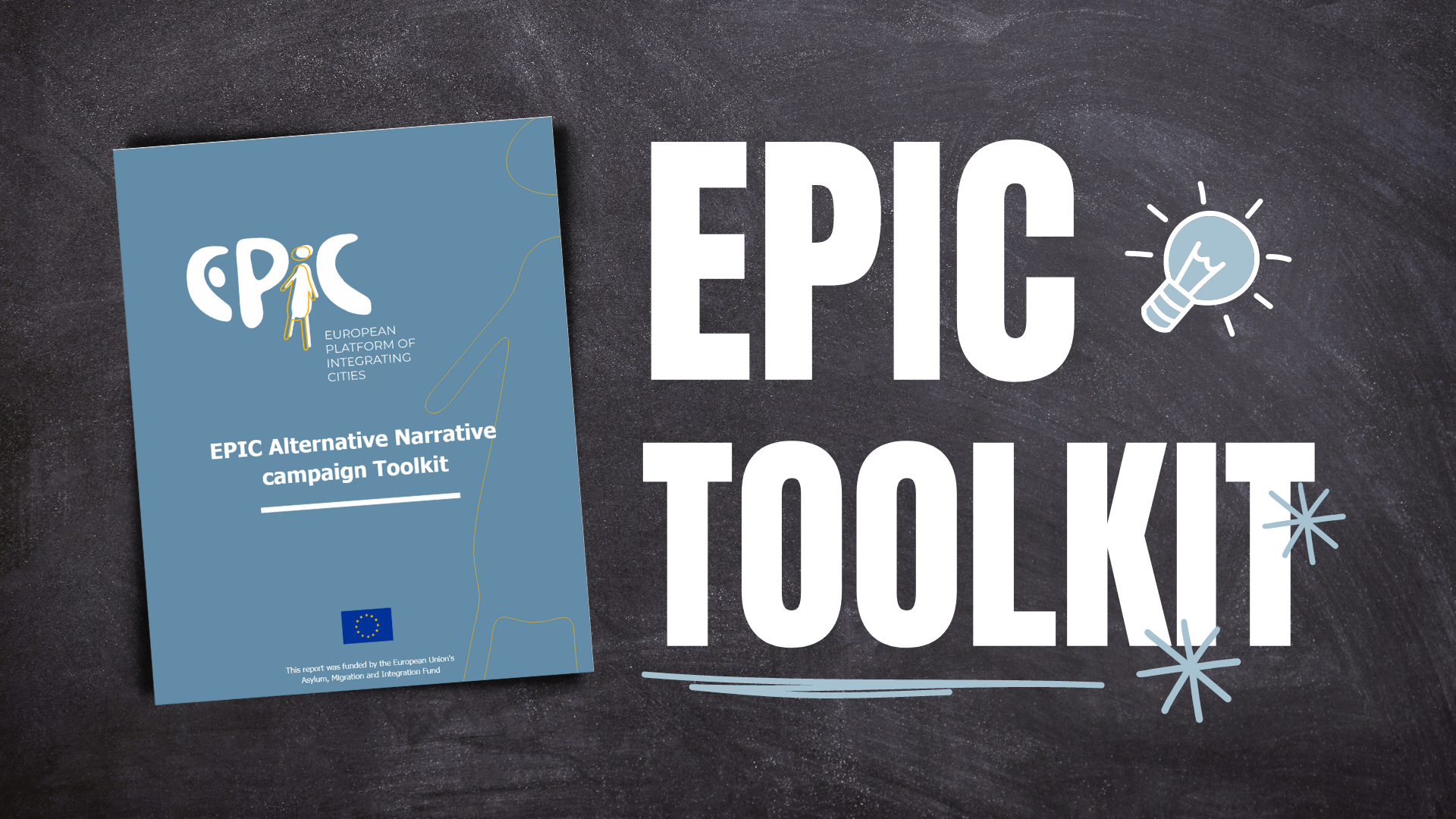
Publication of the EPIC toolkit: local strategies for alternative narratives about migration
As part of the project’s overall objective to address various migration-related challenges, EPIC has made it a key cross-cutting activity for all its partners to analyse how appropriate communication can eradicate certain prejudices and misinformation among the local population. Now the document that has guided to create tailor-made strategies in 8 European cities is available for those who wish to embark on a similar journey
Just as necessary as understanding the main difficulties newcomers face in accessing integration services and experimenting with innovative approaches that can effectively remove these difficulties, is proper communication around them. Integration in a new territory does not only consist of providing food, shelter and documents to access services and the job market. Encouraging newcomers to feel like an integral part of the city and native-born neighbours to embrace diversity is essential to prevent exacerbated discourses on migration from controlling the narrative, generating an atmosphere of mistrust and rejection, and ultimately, undermining social cohesion.
In this context, the lack of adequate information on things like how public services work and who can benefit from them and how are sometimes manipulated by some actors who want to generate controversy and use immigration as a scapegoat.
When the EPIC partners decided to test new services in their cities to make integration processes more efficient, it was therefore, totally clear that we´d need to make the effort in educating ourselves on how to communicate what we were doing and why it was needed.
Such capacity-building processes started with the International Training Course delivered by EPIC in May 2021 and continued during that and the following year with a series of participatory workshops where partners were guided to build little by little what eventually would become their local communication strategies for an alternative narrative about migration.
The toolkit that we present here is the document summarising such a process and presenting, in a nutshell, the campaigns carried out by our EPIC partners across Europe.
The toolkit pays particular attention to the research to be done to assess the particular situation in their community, and the design phase of the campaign and offers some ideas about how to monitor and evaluate the campaign. Before jumping into the concrete process, it was important to reflect on questions such as
- What is the key issue you want to confront?
- What do you want specifically to see different in your community about that issue?
- Who is the main group you want to change the perception?
- Is it realistic?
- Is a communication campaign a good way of changing it?
The target audience of this toolkit is the communication managers/officers in both the local authorities (LA) and the partners NGO in EPIC as the primary beneficiaries, and secondly, practitioners working on the field of social inclusion in those 2 types of organisations as well (LA and NGOs), since it is very often practitioners the one providing the content to the communication managers/officers.
The premise of the toolkit is that local organisations will be running campaigns to change the attitudes and raise awareness of the general public towards migrants, refugees and asylum seekers in their communities. The campaigns may involve both public authorities and civil society from the community and the migrants/asylum seekers themselves in the design, implementation and evaluation of the campaign. Ultimately, they should be the ones – among other target audiences – to see primarily the change in their lives.
While the toolkit has been specifically designed to serve the needs of the EPIC partners, we believe this outcome can be used by any local authority and NGO interested in communicating about migration from a Human Rights protection angle aiming at defeating wrong stereotypes and misconceptions, changing the very often negative narrative around the migration discourse and thus creating more social cohesive cities.